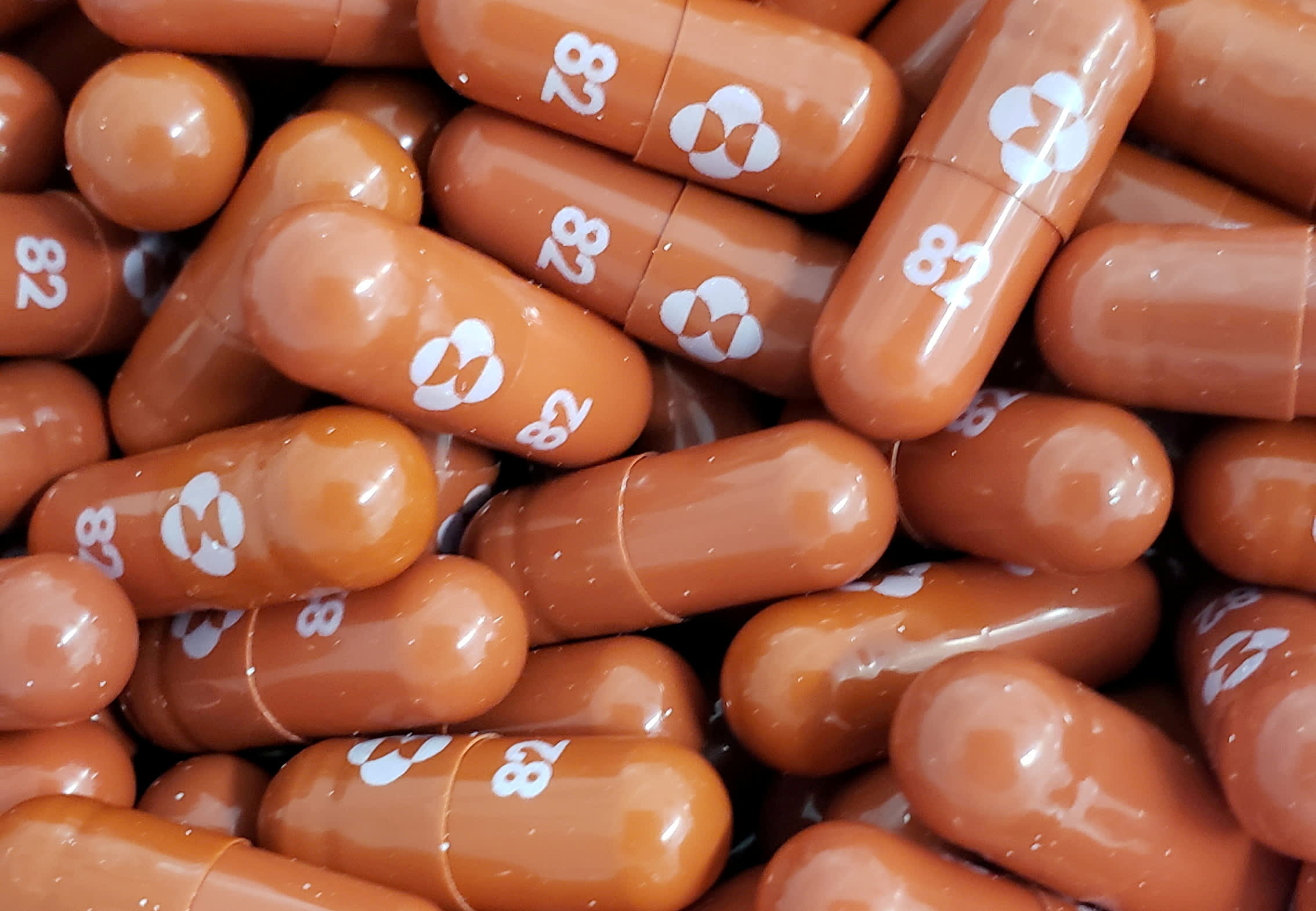Merck sold $952 million of its Covid-19 treatment pill molnupiravir in the fourth quarter, saying Thursday it’s on track to sell another $5 billion to $6 billion more this year.
Most of its sales so far have been concentrated in the U.S., the U.K. and Japan, the company said in releasing earnings results that beat Wall Street revenue and profit forecasts. Merck delivered 1.4 million courses to the U.S. after the Food and Drug Administration after the agency authorized the pill in December.
CEO Rob Davis said Merck is on track to fulfill its commitment in the coming days of delivering 3.1 million courses to the U.S. The company will ship 4 million courses to 25 countries worldwide soon, Davis said. Merck shares profits from molnupirvar equally with its partner Ridgeback Biotherapeutics.
“We’ve shown that molnupiravir works against omicron, which is important against that variant,” Davis told CNBC’s Meg Tirrell Thursday morning. “And obviously we’ll have to see how this plays out and what is the initial uptake but right now we feel we’re off to a good start,” he said.
Here’s how the company performed compared with what Wall Street expected, based on analysts’ average estimates compiled by Refinitiv:
- Adjusted EPS: $1.80 per share vs. $1.53 per share expected
- Revenue: $13.52 billion vs $13.16 billion expected
Merck swung to a $3.82 billion profit in the fourth quarter from a loss of $2.62 billion in the same quarter in 2020.
In clinical trials, molnupiravir reduced the risk of hospitalization or death in Covid patients by 30%, but slashed the risk of dying by 90%. Davis said the U.K. government is conducting a real-world study looking at the drug’s performance, and Merck is tracking molnupiravir’s impact as it rolls out worldwide.
“Despite the fact that we are starting to see at least in the United States, the wave of omicron is still moving its path through, we’re still facing over 2,000 deaths due to the Covid-19 a day,” Davis said. “The fact that molnupiravir does reduce the risk of death by 90%, we could have a meaningful impact in helping patients,” he said.
Merck’s $13.52 billion in fourth quarter 2021 sales increased 24% over the same quarter in 2020, driven by its HPV vaccine Gardasil that prevents cervical cancer and its treatment Keytruda that fights melanoma, lung cancer and hodgkin’s lymphoma.
Keytruda sales increased 15% over the same quarter the previous year for a total $4.58 billion. Gardasil sales increased 53% from the fourth quarter of 2020 to $1.53 billion. Davis said Gardasil has seen tremendous growth in China, which has one of the highest burdens of HPV in the world.
Davis told CNBC that M&A remains an important part of Merck’s strategy, pointing to its acquisition of Acceleron last year as an example of the types of deals the company plans to pursue in the future. The $11.5 billion deal brought in Acceleron’s drug sotatercept, which treats a cardiovascular disease called pulmonary arterial hypertension.
“I do think there could be some opportunities, but it’s going to take some time to see how it actually evolves,” Davis said.
